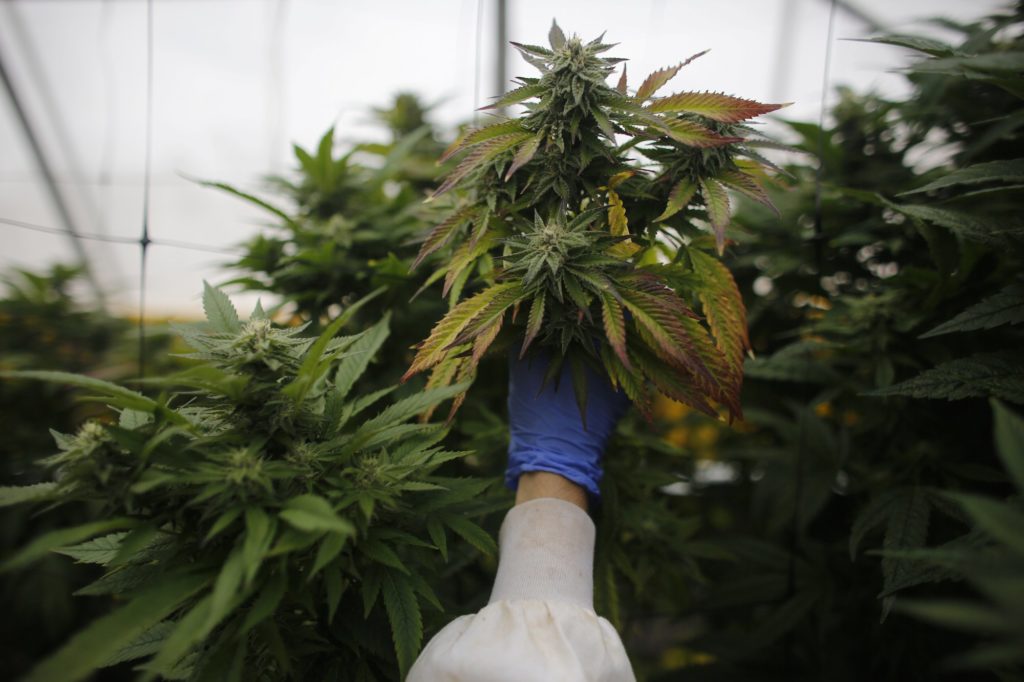You’re not just being paranoid if you think the current White House administration is a little more hostile than the previous one toward the marijuana industry.
According to data from Sentieo, nearly 75% of publicly traded companies with some stake in the marijuana industry deemed Trump’s election important enough to mention it as a risk factor to their shareholders. That’s a significantly higher rate than Sentieo saw across all other industries.
Concern over the prosecution of medical cannabis businesses subsided after the recent budget passed by Congress. It included an amendment that prevents the justice department from using funds to go after medical marijuana. But that doesn’t resolve all the uncertainty.
“The risk clearly still exists,” Azer said. “I rule out nothing with the Trump administration.”
States saw this risk coming, though. And with nearly a quarter of Americans living in places where adult use of marijuana was legalized during the last election, places like California and Colorado are prepared to push back against the federal government.
Trump’s name shows up in filings of less than 14% of all companies, but the stakes are much higher for firms that have bet on the federal government taking a hands-off approach to marijuana policy.
“There is a material risk that if the Obama era policies regarding cannabis are not followed, our business could end and investors could lose their total investment in our Company,” wrote The Marijuana Company of America.
The vast majority of public companies in the cannabis industry trade on over-the-counter markets, as penny stocks, where they have less stringent requirements than the Securities and Exchange Commission requires of firms traded on the national market systems, like the New York Stock Exchange.
Six of the marijuana companies filed documents mentioning Attorney General Sessions specifically, who has been outspoken in his opposition to legalized cannabis.
In April 2016 Sessions said “good people don’t smoke marijuana” and called it a “real danger”. In the 1980s, as a U.S. Attorney in Alabama, he said he thought the Ku Klux Klan “were OK until I found out they smoked pot.”
A May letter from Sessions to Congressional leaders asking them to let him prosecute medical marijuana surfaced just this week.
“Jeff Sessions has never been a friend of the cannabis industry and that obviously has not changed at all,” Azer told Fortune.
While it’s still unclear if Session’s views will translate into changes in policy or enforcement, this attitude shift at the federal level doesn’t align with public opinion on the issue. Azer cited an April Quinnipiac poll that found 94% of Americans support medical cannabis.
As of November, 29 states allowed the use of medical marijuana and a Gallup poll taken in October found that 60% of Americans support legalization for recreational purposes.
That kind of support has led to projections that the industry will be worth $50 billion by 2026, according to Cowen. This estimate assumes federal legalization before 2026, but Azer insists there’s nothing to worry about. that
“I don’t think that the administration changes consumer behavior at all,” she said. “There’s a lot of momentum behind cannabis.”
This dissonance is leading to a boom in the cannabis compliance industry, with startups offering to help companies navigate federal laws and regulations. These entrepreneurs are doing the tedious work of checking local, state and federal laws to make sure businesses in the marijuana industry can handle everything from advertising to payroll without breaking the law.
Even though a clear majority of marijuana companies mentioned Trump’s name, they account for only 4% of filings where the president’s name gets mentioned in a discussion of risk factors, according to Sentieo.
Mentions of Trump as a risk factor appeared in nearly 700 filings in the first 100 days of his presidency, according to The Wall Street Journal. This is more than triple the number of times President Barack Obama was mentioned during the same period of his administration.
One-third of the Trump mentions occur in the healthcare industry, likely due to Republicans’ work to repeal the Affordable Care Act. Only 10% of the filings mentioning Obama as a risk factor in 2009 were in the healthcare sector, while 35% were from finance companies.
The finance industry was the second largest share of Trump’s mentions followed by the energy sector, making up 17% and 13% of times his name appears as a risk factor, respectively.
credit:fortune.com













